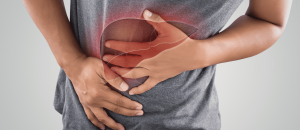Interim Guidance for COVID-19 and Persons with HIV – Updated: March 20, 2020
This interim guidance reviews special considerations for persons with HIV and their health care providers in the United States regarding COVID-19. Information and data on COVID-19 are rapidly evolving. This guidance includes general information to consider. Clinicians should refer to updated sources for more specific recommendations regarding COVID-19.
Guidance for all Persons with HIV
- In current reports, individuals aged >60 years and those with diabetes, hypertension, cardiovascular disease, or pulmonary disease are at highest risk of life-threatening COVID-19, the illness caused by the virus known as SARS-CoV-2.
- The limited data currently available do not indicate that the disease course of COVID-19 in persons with HIV differs from that in persons without HIV. Before the advent of effective combination antiretroviral therapy (ART), advanced HIV infection (i.e., CD4 cell count <200/mm3) was a risk factor for complications of other respiratory infections. Whether this is also true for COVID-19 is yet unknown.
- Some people with HIV have other comorbidities (e.g., cardiovascular disease or lung disease) that increase the risk for a more severe course of COVID-19 illness. Chronic smokers are also at risk of more severe disease.
- Thus, until more is known, additional caution for all persons with HIV, especially those with advanced HIV or poorly controlled HIV, is warranted.
- Every effort should be made to help persons with HIV maintain an adequate supply of ART and all other concomitant medications.
- Influenza and pneumococcal vaccinations should be kept up to date.
- Persons with HIV should follow all applicable recommendations of the U.S. Centers for Disease Control and Prevention (CDC) to prevent COVID-19, such as social distancing and proper hand hygiene. These recommendations are regularly updated.
- Information on COVID-19 prevention in children with HIV for pediatric health care providers and the general public is available from CDC.
- CDC also provides information about COVID-19 prevention during pregnancy.
More Articles
Dr. DeJesus Recognized by Orlando Magazine
For the 5th consecutive year, Dr. DeJesus has been recognized by his peers in Orlando Magazine for his work as medical director at Orlando Immunology Center. Dr. DeJesus is a graduate from the University of Puerto Rico, School of Medicine. He completed his Internal Medicine training and Infectious Disease fellowship at the Medical College of…
Read MoreJoin OIC at the 2015 AIDS Walk Orlando
Orlando Immunology Center is pleased to announce that we will again be sponsoring a team at this year’s 2015 AIDS Walk Orlando. If you are interested in joining our team or donating to this worthwhile cause, please let us know. Saturday, March 28, 2015 In Florida, 15% of all new HIV infections reported among females…
Read MoreOIC Wins Wave Award for Favorite Local Healthcare Professional
The Orlando Immunology Center (OIC) announced today they have received the Central Florida/Orlando 2015 Watermark Awards for Variety and Excellence (WAVE) Award for favorite local healthcare professional. “We see this as a huge honor and will continue to do everything in our power to help patients from all walks of life be healthy, happy and…
Read MoreWhat Is Hepatitis?
What is hepatitis? Are there different types of hepatitis? What are the symptoms of hepatitis? How is hepatitis treated? Hepatitis is a common liver condition that affects millions of Americans. The condition can be contracted from a wide range of causes, including viruses, alcohol use, drugs, or certain medical disorders. Out of the millions of…
Read MoreWhat Is Usually the First Sign of HIV?
What is HIV? What are the signs of an HIV infection? What is an HIV test? What if my HIV test result is positive? HIV, or the human immunodeficiency virus, exists within the bodies of more than 1.2 million Americans. Each year, more than 35,000 new infections emerge. If left untreated, the virus can lead to acquired…
Read MoreWhat Is HPV?
What is HPV? How do I know if I have HPV? How is HPV diagnosed? If I have HPV, am I going to get cancer? Can HPV be cured? How is HPV prevented? HPV stands for human papillomavirus, the most common sexually transmitted disease in the U.S. The illness currently affects 79 million HPV sufferers, many…
Read MoreQueen Bee Educates; Redefining Women’s HIV Advocacy
Who is the Queen Bee? A mother discovers her inner “Queen Bee” and creates a buzz worthy approach to educate women and children about good health and HIV. A honey of a story. Who is the Queen Bee? Dr. Andrea Dunn is a mother, a doctor, an active community member and the Founder, CEO, and…
Read MoreLatest HIV Research Every Women Needs
Discover the latest research, why it matters and what action you can take now! This is the latest HIV research every women needs. Yes, we said EVERY WOMAN. HIV doesn’t discriminate and neither should you. First of all, when you think of good health do you include sexual health? It’s time we did and knowledge is power. To…
Read MoreWhat are Genital Warts?
What are genital warts? What causes genital warts? What are the symptoms of genital warts? How are genital warts diagnosed and treated? Can I prevent genital warts? Each year, more than 20 million people in the United States are diagnosed with sexually transmitted infections (STIs). While this number may seem staggering on its own, STIs are even…
Read More- « Previous
- 1
- …
- 6
- 7
- 8








